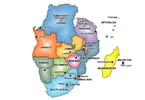HONOLULU, HI – A lawsuit seeking basic government documents has been filed in Federal District Court against the Western Pacific Regional Fishery Management Council (WESPAC), the National Oceanic and Atmospheric Administration (NOAA), and the US Department of Commerce (DOC) by the Conservation Council for Hawaii, KAHEA The Hawaiian-Environmental Alliance (KAHEA), and the LOST FISH Coalition (collectively referred to as “plaintiffs”).
The lawsuit was filed to gain access to documents requested by the plaintiffs in a November 14, 2007 Freedom of Information Act (FOIA) request submitted to WESPAC seeking basic budget, grant, and contract information. Tina Owens from the LOST FISH Coalition said, “In addition to shedding light on the long-hidden and most basic internal operations of this controversial federal entity, the documents may also shed light on how WESPAC funds may have been used in what appears to be various lobbying campaigns to influence state and federal legislative and executive branch decisions related to marine conservation in Western Pacific waters.” Miwa Tamanaha, KAHEA executive director noted, “Wise, sound, community-based management requires accountability and transparency. If there is nothing improper, then there should be nothing to hide. With the situation of our ocean resources so imperiled, it is ridiculous that citizen groups should have to go to these lengths to get basic information about use of our public dollars.”
WESPAC has been under scrutiny related to allegations of illegal lobbying, including actions to try and halt the NWHI and CNMI National Marine Monument declarations and for funding the controversial Puwalu Series, a lobbying ploy to pass legislation curtailing community-based-fishing-management programs in Hawaii. Based in Honolulu, WESPAC is the subject of at least two active federal investigations – one by the US Department of Commerce Office of the Inspector General (IG) and another by the US Government Accountability Office (GAO).
Tina Owens also said, “Getting any public information from WESPAC is virtually impossible, and that’s not only not right, it’s not legal. This is a federal entity funded by taxpayers’ money, and unless specific documents fall under one of a few narrow FOIA exceptions, every document in their possession must be open to the public. Back in October of 2007, the public was told by WESPAC executive director Kitty Simonds that WESPAC’s library and all of its documents ‘…are open to the public at any time.’ For months I tried to access the WESPAC library and WESPAC documents, and at each turn Ms. Simonds put up new roadblocks to my access, often at significant cost and inconvenience. When she could ignore me no more, she backtracked and stated that I had to file a Freedom of Information Act request. So I did. Then she ignored that as well. What is WESPAC hiding? How can a federal entity treat the public like this? They need to realize they are answerable to the public.”
While disclosure of public documents is required under federal law, the WESPAC situation is made worse by WESPAC’s refusal to use uniform information procedures. “There is a shocking insensitivity of WESPAC and its executive director Kitty Simonds to the required open and transparent decisionmaking,” said lead counsel Peter Van Tuyn, Esq. “As President Obama states, a ‘democracy requires accountability, and accountability requires transparency.’” This lawsuit is intended to force the doors open on this rogue council and ensure that accountability.
The original FOIA requests were generated as part of the plaintiffs’ ongoing oversight of Western Pacific federal and state water ocean resource conservation issues involving the restoration and protection of the Western Pacific Ocean environment and the people who reside in the region. NOAA and the Department of Commerce are defendants because they have refused to exercise their oversight responsibilities with respect to WESPAC to help plaintiffs get the documents. “NOAA’s support of citizen groups seeking access to public records from WESPAC is crucial if we are to end overfishing and ensure science-based management,” said Marjorie Ziegler, executive director of Conservation Council for Hawaii. “WESPAC is controlled by commercial fishing interests and, therefore, strict NOAA oversight is critical. Ending overfishing and allowing the fish stocks to recover will benefit all of Hawaii’s fishers, fishing communities, our endangered monk seal, threatened seabirds, and our beloved honu (green sea turtles).”
The Western Pacific Regional Fishery Management Council (WESPAC) is one of eight regional councils established under the US Magnuson-Stevens Fishery Management and Recovery Act to manage the nation’s offshore marine resources. Additional information is available at www.wpcouncil.org .
LINK TO WHITE HOUSE STATEMENT
http://belammc.com/wespac/Obama_FOIA1.pdf
LINK TO COMPLAINT
http://belammc.com/wespac/090115FiledLawsuit.pdf
Attorneys for the Plaintiffs:
Peter Van Tuyn
BESSENYEY & VAN TUYN, L.L.C.
Anchorage, AK
Tel: 907-278-2000
[email protected]
David Bahr
WESTERN ENVIRONMENTAL LAW CENTER
Eugene, OR
Tel: 541-485-2471
[email protected]
James J. Bickerton
[email protected]
David A. Paulson
[email protected]
BICKERTON LEE DANG & SULLIVAN
Honolulu, Hawaii
Tel: 808-599-3811
Plaintiffs:
KAHEA
The Hawaiian-Environmental Alliance
Miwa Tamanaha, Executive Director
Honolulu, Hawaii
Tel: 808-524-8220
[email protected]
The Conservation Council for Hawaii
Marjorie Ziegler, Executive Director
Honolulu, Hawaii 96814
Tel: 808-593-0255
[email protected]
The LOST FISH Coalition
Tina Owens, Executive Director
Kailua-Kona, Hawaii
Tel: 808-895-1631
[email protected]
WHAT TO TAKE AWAY FROM THIS ARTICLE:
- Tina Owens from the LOST FISH Coalition said, “In addition to shedding light on the long-hidden and most basic internal operations of this controversial federal entity, the documents may also shed light on how WESPAC funds may have been used in what appears to be various lobbying campaigns to influence state and federal legislative and executive branch decisions related to marine conservation in Western Pacific waters.
- A lawsuit seeking basic government documents has been filed in Federal District Court against the Western Pacific Regional Fishery Management Council (WESPAC), the National Oceanic and Atmospheric Administration (NOAA), and the US Department of Commerce (DOC) by the Conservation Council for Hawaii, KAHEA The Hawaiian-Environmental Alliance (KAHEA), and the LOST FISH Coalition (collectively referred to as “plaintiffs”).
- The original FOIA requests were generated as part of the plaintiffs' ongoing oversight of Western Pacific federal and state water ocean resource conservation issues involving the restoration and protection of the Western Pacific Ocean environment and the people who reside in the region.






















